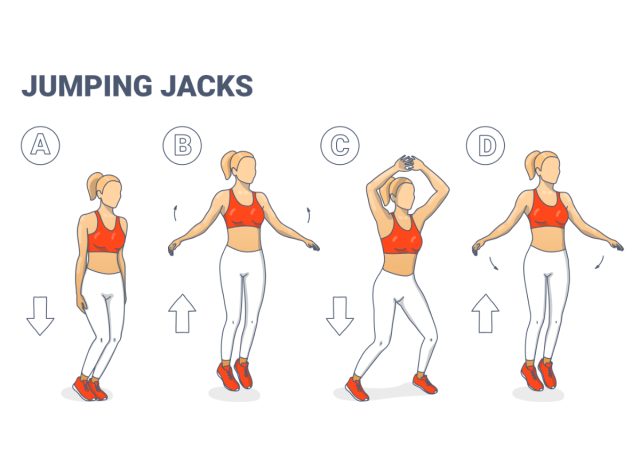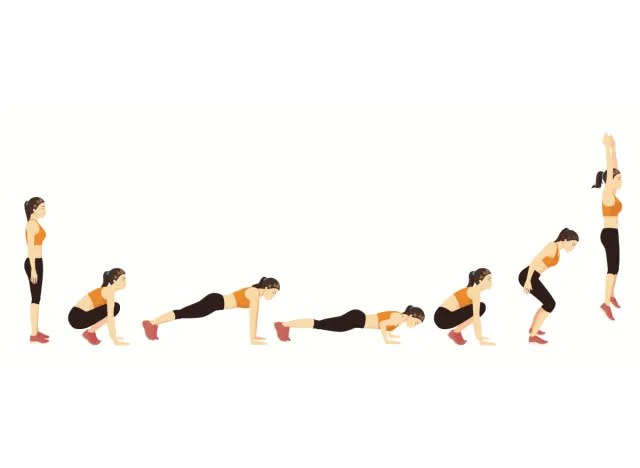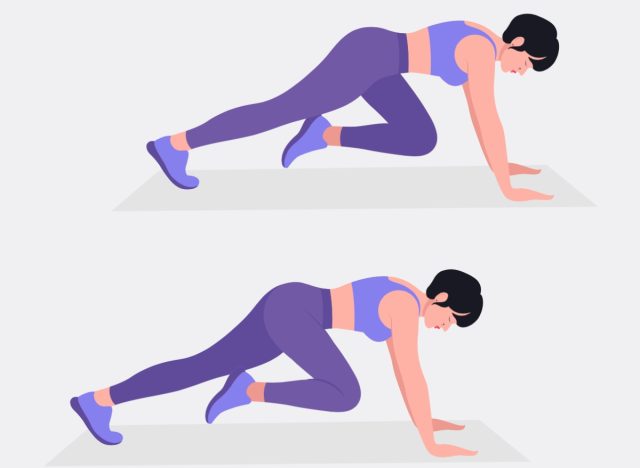Share this @internewscast.com
Belly fat is a common concern for many of my clients seeking to improve their overall health and appearance. While spot reduction is not entirely possible, incorporating cardiovascular exercise into your routine can be an effective way to reduce overall body fat, including stubborn belly fat. If you’re wondering how often you should do cardio to lose belly fat, you’re in luck. In this article, we’ll explore how cardio benefits belly fat loss, determine the optimal frequency for cardio workouts, and provide a sample cardio workout specifically designed for targeting belly fat.
Incorporating regular cardio into your fitness routine is a key component of losing belly fat. Finding a balance between moderate-intensity workouts and higher-intensity interval training, along with a healthy diet, can contribute to overall fat loss and improved well-being. Always consult with a healthcare professional or fitness expert before starting a new exercise program, especially if you have any pre-existing health conditions.
Keep reading to learn more, and when you’re finished, be sure to check out 5 Most Effective At-Home Workouts for Weight Loss.
How is cardio beneficial for belly fat loss?

Cardiovascular exercise, commonly known as cardio, involves activities that elevate your heart rate and increase oxygen consumption. Engaging in regular cardio workouts offers several benefits for losing belly fat:
1. Caloric Burn
Cardio exercises, such as running, cycling, and swimming, burn calories, creating a calorie deficit that’s essential for weight loss. As you consistently burn more calories than you consume, your body taps into stored fat reserves, including those around the abdominal area.
2. Metabolism Boost
Cardio helps boost your metabolism, leading to increased calorie expenditure even when you’re at rest. High-intensity cardio, such as interval training, is particularly effective in revving up your metabolic rate.
3. Reduction of Visceral Fat
Visceral fat, the fat stored around your internal organs, is associated with various health risks, including cardiovascular diseases and diabetes. Cardio helps reduce visceral fat, contributing to a healthier overall body composition.
How often should you do cardio to lose belly fat?

The frequency of cardio workouts depends on individual factors such as fitness level, goals, and time constraints. However, a general guideline for losing belly fat through cardio is as follows:
Moderate-Intensity Cardio
Aim for at least 150 minutes of moderate-intensity cardio per week. This could include activities like brisk walking, jogging, or cycling. Break it down into sessions lasting at least 30 minutes on most days of the week.
High-Intensity Interval Training (HIIT)
Incorporate HIIT workouts into your routine two to three times a week. These short, intense bursts of activity followed by periods of rest are effective for burning calories and promoting fat loss, including in the abdominal region.
Here’s a sample cardio workout to lose belly fat:
1. Jumping Jacks

Start with your feet together and your arms by your sides. Jump up and spread your legs while simultaneously raising your arms overhead. Quickly return to the starting position by jumping again. Repeat for one minute, maintaining a steady and controlled pace.
2. Burpees

Begin in a standing position. Drop into a squat position, and place your hands on the ground. Jump your feet back, landing in a plank position. Perform a pushup, then jump your feet back toward your hands. Explosively jump into the air, reaching your arms overhead. Repeat for 45 seconds, focusing on proper form and engaging your core.
3. Mountain Climbers

Start in a plank position with your wrists directly under your shoulders. Bring one knee toward your chest, then quickly switch legs. Keep your core engaged, and maintain a quick, rhythmic pace. Repeat for 45 seconds, alternating legs with each movement.
4. Rest
Take a 30-second rest period to catch your breath and prepare for the next round. Focus on controlled breathing and staying hydrated.
5. Repeat the Circuit
Complete the entire circuit (jumping jacks, burpees, mountain climbers, rest) three times for a comprehensive HIIT workout.














